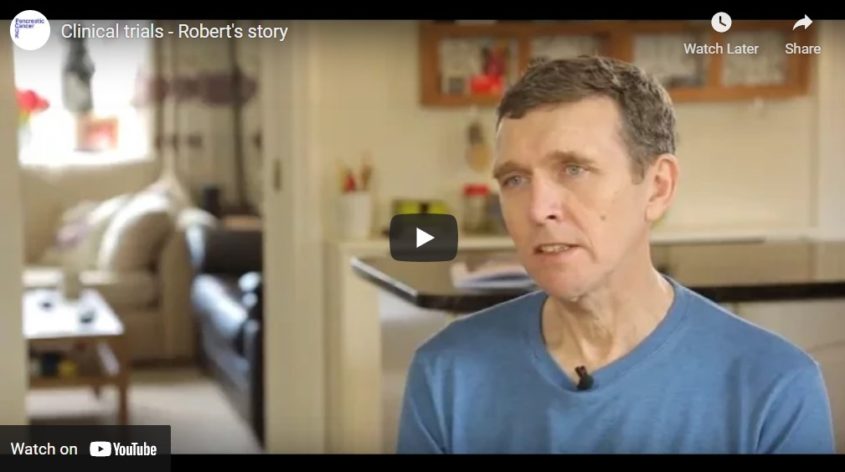Clinical trial finder
Use our Clinical trial finder to search for clinical trials for pancreatic cancer that are taking place in the UK at the moment.
The results of the trial are usually not available until the end of the trial. Once the trial is complete, researchers will look at all the data and draw their conclusions.
Medical researchers have a duty to publish their results. Sharing research findings can show what was learned from the trial and any improvements the treatments could make to people’s treatment and care. Sometimes a trial will show that a new treatment does not work any better than the current treatment. This may be disappointing, but it is still useful information.
The results are usually presented at meetings and conferences for health professionals. They may also be published online and in medical journals. This can be months or even years after the trial. Details of the people taking part in a trial are not included in the results.
The information you will get about a trial usually explains what will happen to the results. You may be asked at the start of the trial whether you would like to receive the results when they are available. Ask your doctor or nurse how you can find out about the results if you would like to know them.
If a trial is successful and the new treatment works, it can still take a long time before it is used in the NHS.
If the treatment involves a new drug, it will need to be licensed for use in the UK. It will also need to be approved for use in the NHS. This is done by the following organisations:
They will look at the results of all the studies involving the new treatment and decide whether it should be funded on the NHS. Their decision is partly based on whether the benefits of the treatment outweigh the financial costs of providing it.
Use our Clinical trial finder to search for clinical trials for pancreatic cancer that are taking place in the UK at the moment.
"One important thing that if you're going into a clinical trial you need to understand. This isn't being offered as a treatment which will help you. It possibly could, but it is a trial to get greater understanding of new drugs and how they work. Ultimately, you've got to decide if it's right for you."
Robert shares his experience of taking part in a clinical trial.


Published January 2025
Review date January 2028